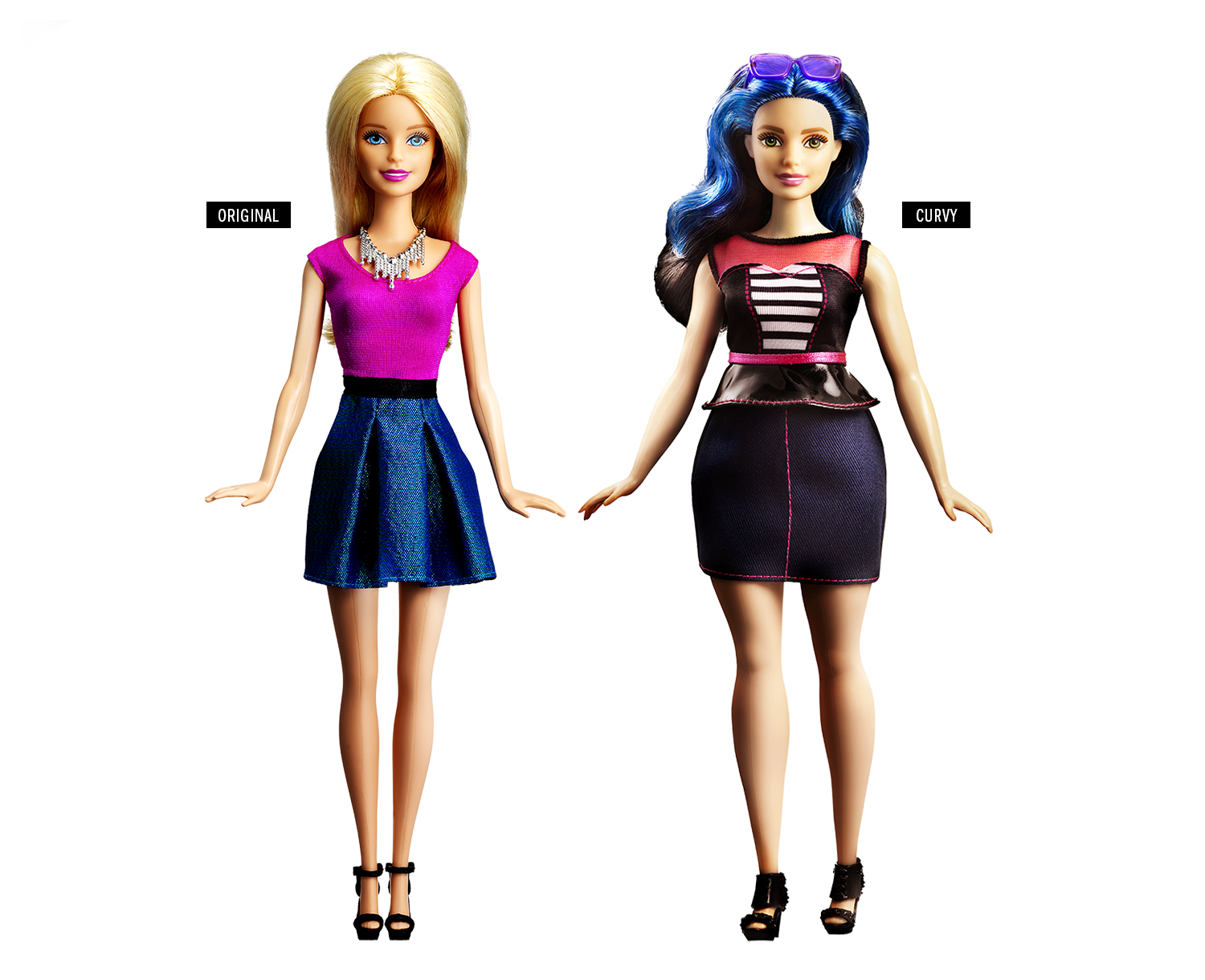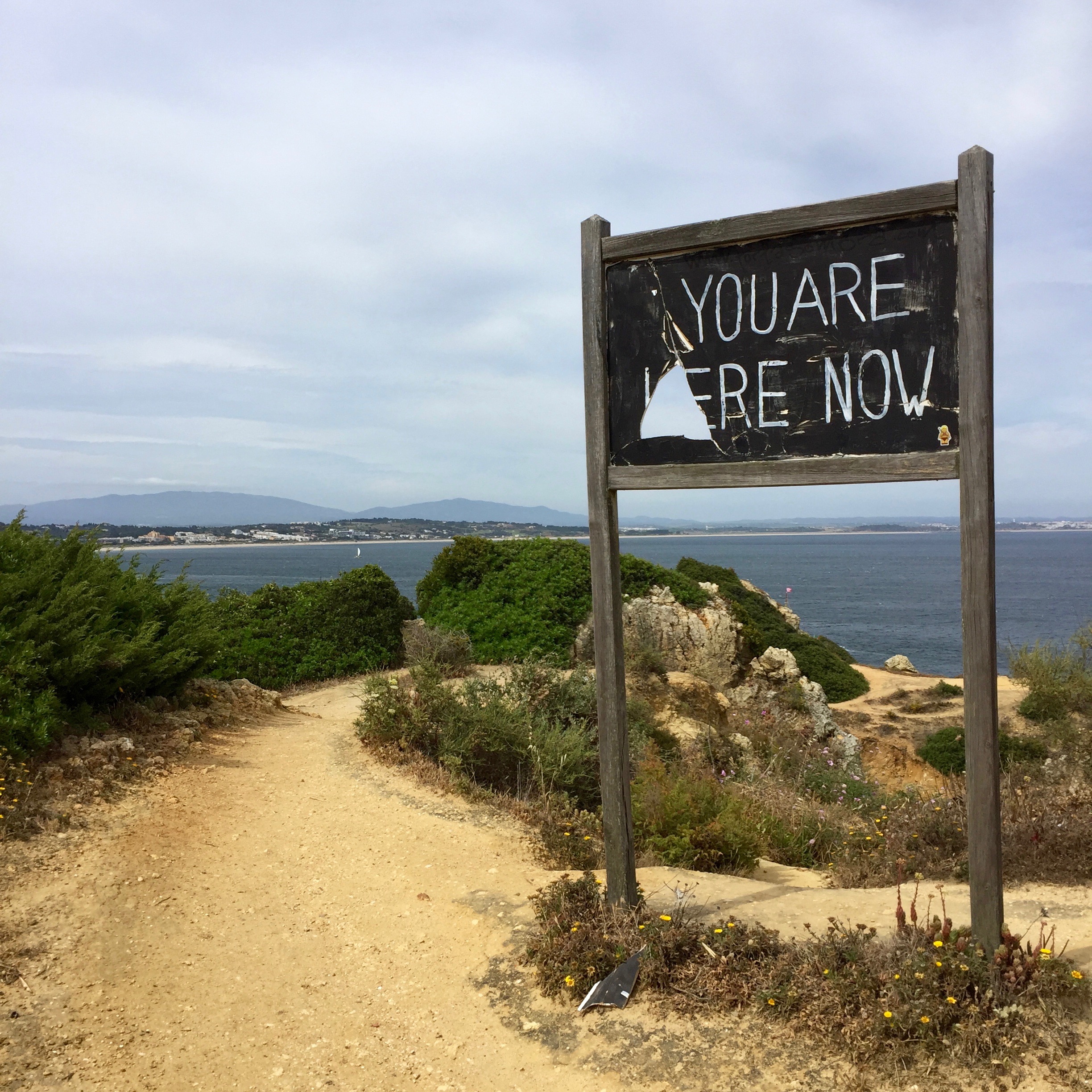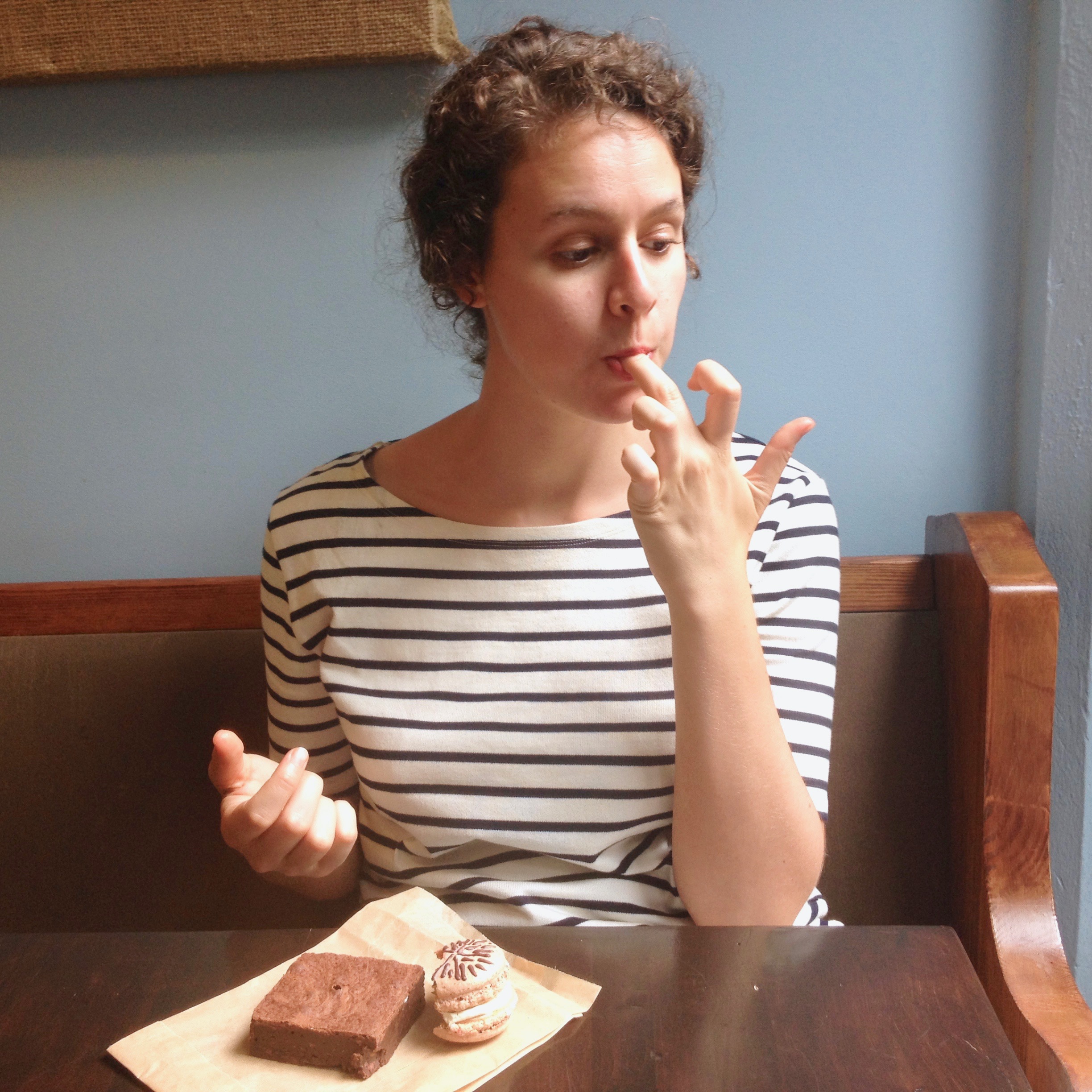When you think of unrealistic cultural messages about thinness, you might think of Barbie. And you wouldn’t be alone: Mattel claims that changing Barbie’s body to be more realistic was the top request from parents in recent years.
Enter: Curvy Barbie.
Image from Time article
Curvy Barbie was introduced in 2016 to address these concerns, among others — Petite (a.k.a. “short”) and Tall Barbies were also launched, as well as Barbies with a larger rage of skin tones and hair textures.
Eliana Dockterman, who wrote a great piece about the launch for Time, was invited to watch some of the focus groups with parents and kids react to Curvy Barbie, and what she found really surprised me:
The unsurprising part was that parents, especially moms, almost uniformly appreciated the new options. “She’s cute thick,” one mom quoted by Dockterman said. “I have the hardest time finding clothes that are fitted and look good. It’s like if you’re bigger, you have to wear a sack. But she doesn’t look like that.”
But then came the children.
When they were in the room with Mattel researchers, the six- and seven-year-olds were diplomatic. “This one’s a little chubbier,” one girl said. An 8-year-old, when asked if she saw a difference between Curvy Barbie and Regular Barbie, said, “She’s, well, you know,” and used her hands to draw the shape of a curvier woman.
When the adults left the room, this changed.
“Hello, I’m a fat person, fat, fat, fat.” That’s what one six-year-old said, giving voice to a Curvy Barbie once the Mattel researchers had left the room. The other girls in the room “erupt[ed] in laughter.”
This wasn’t an isolated case. “We see it a lot. The adult leaves the room and they undress the curvy Barbie and snicker a little bit,” confirmed Tania Missad, who runs the research team for this project.
…
There are two things that are sad about this reality — one obvious, and one more subtle.
The first thing — the more obvious thing — is that girls as young as six or seven already have such strong, and misinformed attitudes towards body image. I mean, take a look at the image of “curvy” Barbie at the top of this piece. I think if you saw her as a human, she’d actually still be quite slim; she just happens to also have hips and breasts.
And even if she was “fat,” is that cause to snigger and make fun of her?
But the second, more subtle — and, in my opinion, more insidious — point is that even as young as six or seven girls know how to hide their negative attitudes towards fatness.
Their negative attitudes towards fatness have gone underground.
Some consider this to be a good thing. Dockterman, author of the Time magazine article, says, “It’s a testament to anti-bullying curriculums in elementary schools that none of the girls would use words like fat in front of an adult,” and that this trend wasn’t true even three years ago.
But I’m not so sure.
If things are out in the open, we can talk about them, explore them, challenge them. If things are hidden, we can’t. For six- and seven- year-old-level, it’s highly likely that teachers or other adults might think that the anti-bullying work is working. But is it? Or has it just gone underground, where it is harder to address?
It seems likely that even older kids — say, nine- and ten-year-olds — might be even more sophisticated at hiding their attitudes from adults, and maybe even from other kids. But those judgements would still be impacting their decision-making, perhaps just on a more implicit level.
I’m particularly concerned about this, though, because I see it playing out with the many adults I work with.
Most of my clients are smart, thoughtful people who have lots of smart, thoughtful critiques of the messages that we receive from culture and media about bodies.
If you talked with these people about body image, you’d hear phrases like, “all bodies deserve love and respect,” and “We get too many negative pressures from the media about weight.”
But if you looked inside these people’s heads, here’s what you’d find:
“I really need to lose 10 pounds.”
It’s my observation that in adults, and especially adult women, negative attitudes towards bodies have gone underground. Way underground. So far underground that the women are tortured in their heads about their desire to lose weight — but may feel embarrassed admitting it with their friends, because they don’t think their friends need to lose weight. Their friends are fine just as they are!
Some of these women are embarrassed admitting this desire to lose weight even to themselves. It exists in the background — like a fly they keep swatting away — but they try not to look at it directly.
And yet, it’s still there.
And for many of us, it’s affecting our eating and exercise and other decisions in a major way.
In some ways, navigating this cognitive dissonance is even more challenging than if we could explicitly talk about it. It’s still profoundly affecting us; we’re just not looking at it directly.
So that’s my offering to you this week: Can you spend some time explicitly examining your desire to lose weight or change your body (if you have one)? Can you honestly examine the judgements people and how smart, together, friendly, and worthy they are, based on their weight?
Can you bring your judgements above ground?
….
For many of us, our judgements about our bodies have made our relationship with food extremely complex, stressful, and unhappy. I offer a group called The Dessert Club which helps people figure out how to relate to food and their bodies with more comfort, respect, and ease — the next groups start in October and you can find more information here, if it’s of interest.


















